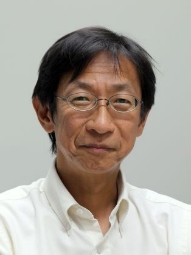TALK A data-centric approach to driving behavior research: How can signal processing methods contribute to the development of autonomous driving?
Date released: March 15, 2016
-
TALK A data-centric approach to driving behavior research: How can signal processing methods contribute to the development of autonomous driving? Date & Time:
Tuesday, March 15, 2016; 12:00 PM - 12:45 PM
-
Abstract:
Thanks to advanced "internet of things" (IoT) technologies, situation-specific human behavior has become an area of development for practical applications involving signal processing. One important area of development of such practical applications is driving behavior research. Since 1999, I have been collecting driving behavior data in a wide range of signal modalities, including speech/sound, video, physical/physiological sensors, CAN bus, LIDAR and GNSS. The objective of this data collection is to evaluate how well signal models can represent human behavior while driving. In this talk, I would like to summarize our 10 years of study of driving behavior signal processing, which has been based on these signal corpora. In particular, statistical signal models of interactions between traffic contexts and driving behavior, i.e., stochastic driver modeling, will be discussed, in the context of risky lane change detection. I greatly look forward to discussing the scalability of such corpus-based approaches, which could be applied to almost any traffic situation.
-
Speaker:
Prof. Kazuya Takeda
Nagoya University Dr. Kazuya Takeda has worked for many years in the field of signal processing technology research with vehicle and traffic applications. In particular, he has focused on using data-centric approaches to understand driving behavior, and his primary interest has been the development and utilization of a multi-modal signal corpus of driving behavior recorded in real traffic [1-4].
Dr. Kazuya Takeda has worked for many years in the field of signal processing technology research with vehicle and traffic applications. In particular, he has focused on using data-centric approaches to understand driving behavior, and his primary interest has been the development and utilization of a multi-modal signal corpus of driving behavior recorded in real traffic [1-4].
Dr. Takeda is a Professor at the Graduate School of Information Science and the Green Mobility Collaborative Research Center, Nagoya University, Japan. He received his B.E.E., M.E.E. and Ph.D. from Nagoya University. After graduating from Nagoya University in 1985, he worked at the Advanced Telecommunication Research Laboratories and at KDD's R&D Laboratories in Japan, mostly in the area of speech signal processing. He was a Visiting Scientist at the Massachusetts Institute of Technology from October 1988 to April 1989. In 1995, Dr. Takeda returned to Nagoya University, where he started a research group to explore signal processing applications. Since then, he has been investigating a wide range of research topics, including acoustics and speech as well as driving behavior. Dr. Takeda has co-edited five books on vehicular technologies and is the co-author of more than 100 journal articles.
[1] K. Takeda et al., "An International Large-Scale Vehicle Corpora for Research on Driver Behavior on the Road," IEEE Trans. on ITS, Vol. 12 (4), pp. 1609-1623, 2011.
[2] C. Miyajima et al., "Driver Modeling Based on Driving Behavior and Its Evaluation in Driver Identification (Invited Paper)," Proceedings of the IEEE, Vol. 95, No. 2, pp. 427-437, 2007.
[3] H. Okuda et al., "Modeling and Analysis of Driving Behavior based on Probability Weighted ARX Model," IEEE Trans. on ITS, Vol. 14 (1), pp. 98-112, 2013.
[4] K. Takeda et al., "Self-coaching system based on recorded driving data: Learning from one's experiences," IEEE Trans. on ITS, Vol. 13 (4), pp. 1821-1831, 2012. -
Research Area: